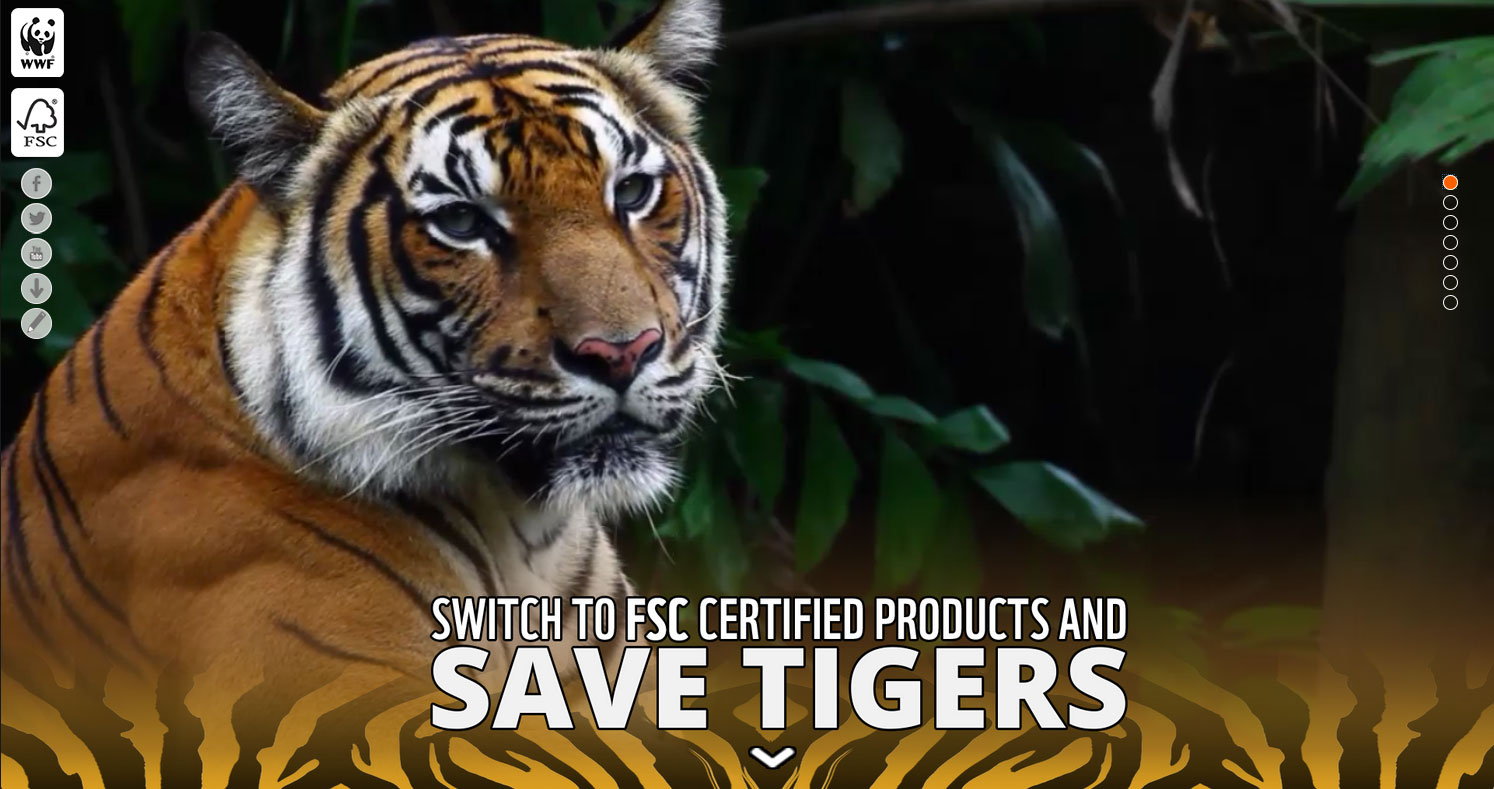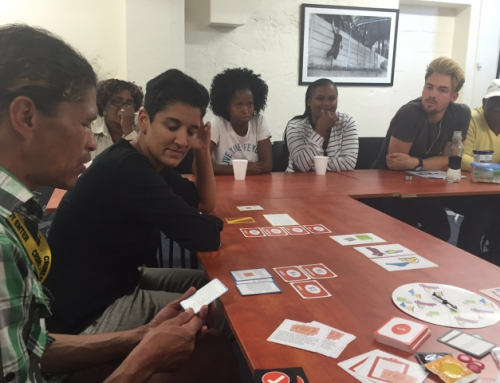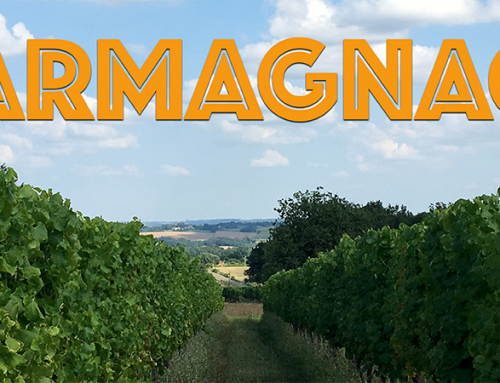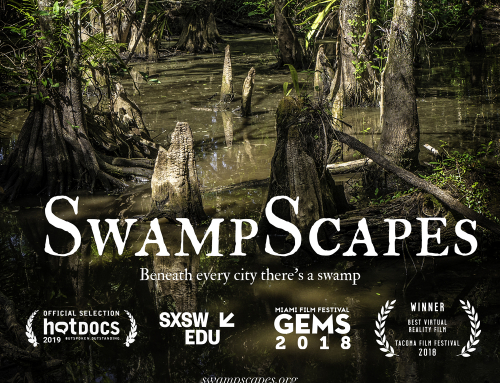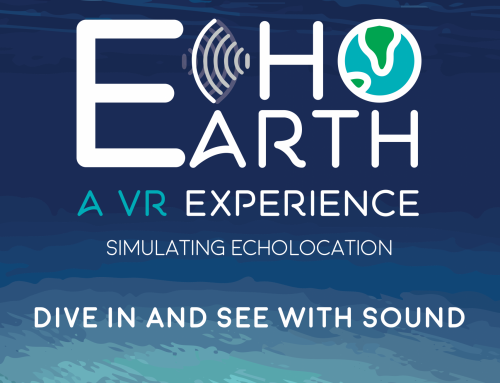Project Description
Professor Lien Tran ran the first ever CoLab class for the School of Communication’s M.F.A. in Interactive Media program. CoLab classes are designed so that students in their final year of the two-year program have an opportunity to create interactive solutions for a client partner, like a mini digital agency. During the Fall 2014 semester, the CoLab students had the privilege of working with the U.S. chapter of World Wildlife Fund, which is the world’s leading conservation organization. WWF works in 100 countries and is supported by 1.1 million members in the United States and close to 5 million globally. The U.S. chapter (WWF-US) is headquartered in Washington, D.C., and is the largest WWF national chapter in the world. According to Professor Tran, “The Interactive Media program is really fortunate to have such an incredible project partner for its first CoLab. Not only are our students getting professional experience designing for an organization that has both a prominent national and international presence, but also their efforts can actually make a difference and encourage positive environmental and social change.”
Over the course of this semester, students worked on two online campaigns targeting the millennial generation to inform and encourage them to buy FSC products. FSC is an international standard and the only sustainable wood standard that WWF endorses. This partnership was made possible thanks to UM alumna Sara Thomas (BSC ’05) who is currently the Online Marketing Senior Specialist for Advocacy at WWF-US. Kim Grinfeder, director of the Interactive Media program, said, “CoLab is a class that blends what we are trying to do as a program: help out the greater community while giving students the opportunity to grow their skills. We hope that CoLabs like this one will develop great partnerships between organizations like WWF and the School of Communication for many years to come.” Students are very excited about the opportunities that the WWF CoLab has provided them like hands-on experience to take the skills they have learned in the classroom and apply them to a real-world client. Additionally, the CoLab class allows students to work together in small teams, bringing together a variety of students and skillsets. Some students may have greater interest or proficiency in visual and digital design while others prefer to write code; the CoLab allows teams to collaborate and utilize these skills how they see fit. Franklin Zhang and Will Vesely commented that the CoLab class “gives students a chance to experience real world deadlines and try and complete all aspects of the project [including content, design, and development] in a short period of time.” Sara Thomas and her colleague Kerry Green Zobor, VP of Communications at WWF-US, traveled to UM in mid-September to participate with faculty and the CoLab students in the a two-day ideation and prototyping workshop. Kerry Green Zobor commented, “The students in this graduate MFA program bring a diverse set of experiences and skills to our activism efforts. They have quickly grasped our issues and created two creative, innovative and interactive engagement solutions that will help connect with our current and potential supporters.”
On October 6, 2014, six of the CoLab students along with Professor Tran went to Washington, D.C. for the day and presented their initial online campaign concepts to WWF staff. Jack Wang describes his team’s mission as “creating sharable digital content that involves personal feelings and trying to make the connection between the Millennials and nature.” This is a tall order for just a few months working with WWF, but the students believe it is worth it when you feel the client [WWF-US] is taking their projects seriously and that the class’s collective efforts will have a positive impact on the organization. The two projects were well received by the 15 total WWF staff members in attendance. They were really excited about how much progress the class has made so far and gave really useful feedback for moving both campaigns forward. The students felt that the trip was a great learning experience for what they will face in the working world. They benefitted greatly from having the chance to present in person and hearing feedback directly from the client. They also got to experience the WWF’s work culture and take a tour of their unique platinum LEED certified scenic green roof.
UM’s MFA in Interactive Media program is fortunate that the employees of WWF have been so supportive of the partnership and the students’ work. Sara Thomas said, “The partnership between World Wildlife Fund and UM’s MFA program in Interactive Media continues to be incredibly productive and insightful. From the in-person workshop that University of Miami hosted, to the all-day session in D.C. at WWF’s Washington, DC headquarters, we’ve continued to see an advanced, thoughtful approach to helping us reach new audiences and expand our work online. We are thrilled about the innovative solutions the students have presented so far – each with a focus on helping us increase engagement and deepen relationships with current and potential WWF advocates living in the U.S. The sky’s the limit with this group!” By the end of the semester, the students will have completed the design and development for these two online FSC campaigns and will present the final websites to Sara Thomas and Kerry Zobor at the School of Communication on Friday, December 12, 2014. The next step would be to pass the projects on to WWF, which plans to launch the two campaigns in 2015.
